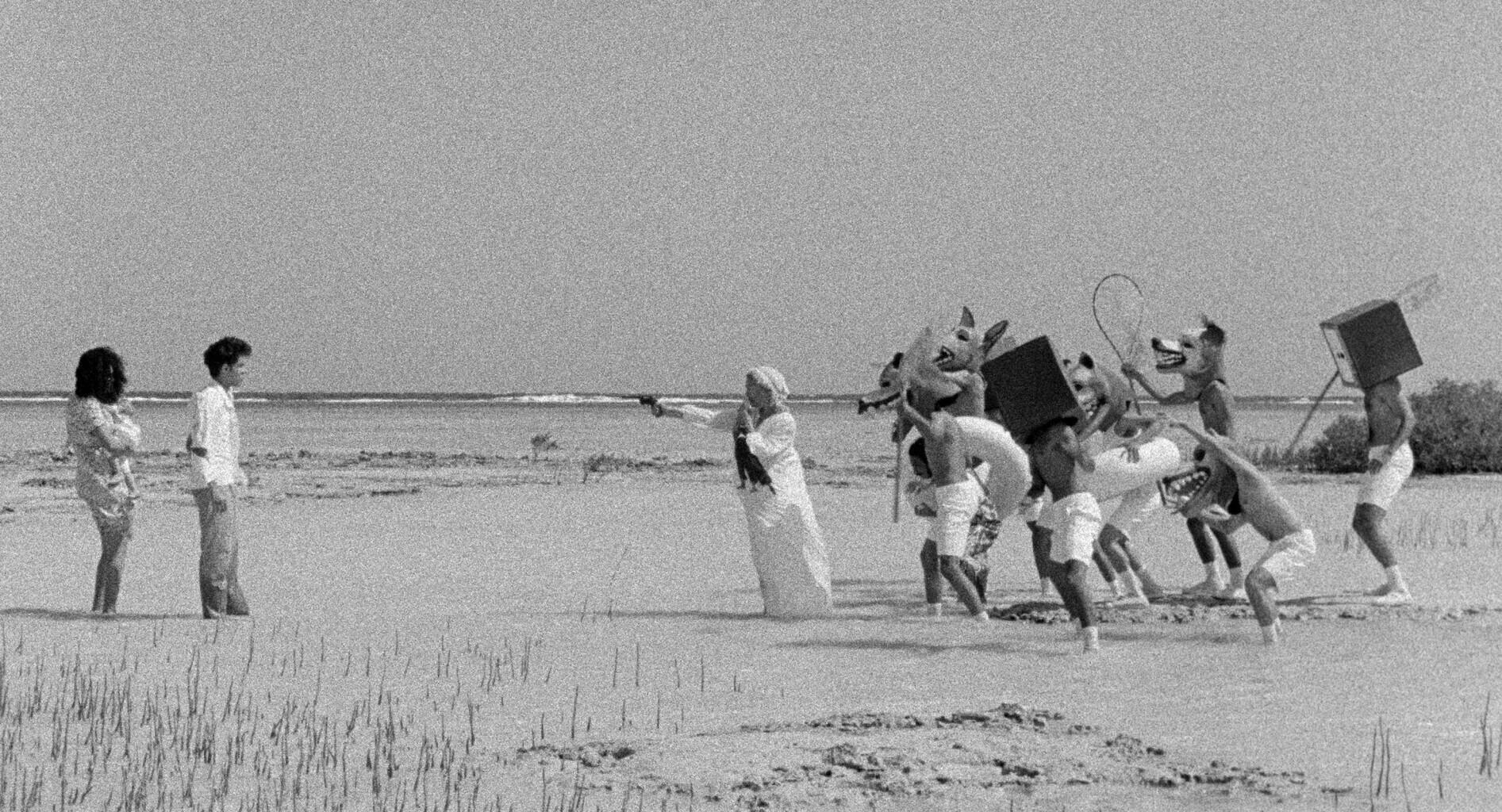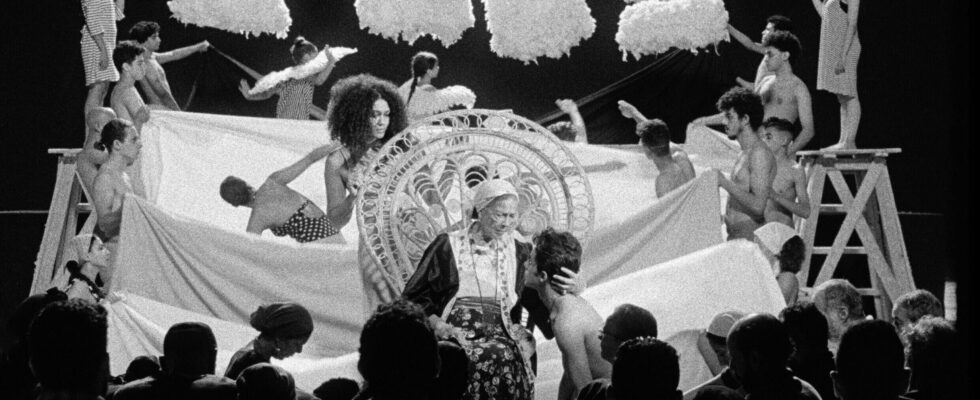It’s a little gem, poetically speaking perhaps the most beautiful film of the Cannes Film Festival this year. With “East of Noon”, presented as a world premiere at the Directors’ Fortnight, the Egyptian Hala Elkoussy, born in 1974, artist, visual artist, photographer, sculptor, is transformed with her second feature film into a Scheherazade in a fantasized modern Egypt , between dream, revolt and repression. Interview with a director who unmasks dictators with a piece of sugar and unleashes waves with simple sheets.
5 mins
RFI : At the very beginning of your film, a woman dressed in white, sitting in the sea in a fabulous chair, tells us : “ Once upon a time there were scared people “. This is the starting point of the film. Was that also the starting point of why you wanted to tell this story? ?
Hala Elkoussy : Yes. This starting point is very personal. At certain moments in my career, in my personal life, I asked myself: “ But what role does fear play in people’s lives? ? » It’s a feeling that is everywhere, it influences everything and it changes everything. You could say that this is perhaps the most important feeling in the history of humanity. This is the starting point, the question: when are we afraid?
Read also► All our articles and broadcasts on the 2024 Cannes Film Festival
In this story, East of Noon, there is a dictator, Master Shawky. He doesn’t live in a palace, but in a sort of industrial wasteland. He doesn’t have any gold treasure, but he collects sugar cubes. Can we speak of a kingdom of fake ?
Of fake ? No. Sugar came to me in a fairly natural way. Sugar is the poor man’s drug. They don’t have enough money for food, so they drink their tea and coffee with lots of sugar. This has a very strong effect. When you consume a lot of it, you feel very energetic, you can work, but at some point there is a crash, like with drugs. This struggle for power over sugar is symbolic. For example, all over the world, there have been moments of lack of sugar, just as we have lacked, in recent history, also other things, oil, medicines… So, the idea is that he has something that is necessary for life to continue. He picks it up and keeps everything for himself.
Opposite Master Shawky, there is a lady as old as she is wise and kind. Galala runs a storybook store. She is aware of the power of her tales, because she says to the dictator: “ If you don’t do what I ask, I will change the story of my tales. » But, Master Shawky is a showman. East of Noonis it a struggle between two stories, between two ways of telling History ?
It is also a very conscious critique of the role of art, of the role of the media. What do they bring to people? And what would they have brought to people in a better world? If they were not accomplices, what could the world be like?
There is a third very important person in the film, Abdo, Galala’s grandson. He is young, handsome, intelligent, musical and a rebel at heart. For him, music is the voice of angels. What is cinema for you? ?
Cinema is life. This is all we want to take from our life into the future. It is also our story. Besides, cinema is the tale of our predecessors. This is our story. This is our collective story.
Egypt has long been a very big cinema country and often represented in the official selection of the Cannes Film Festival. Today, what is the situation for you today in Egypt for shooting a film and who will see East of Noon in Egypt ?
I believe that many people will be able to see the film in Egypt, but not necessarily thanks to the distribution in theaters. Distribution in theaters is in a situation that I find very precarious, not only because of Covid, but also because of the very difficult economic situation. And also, because, for years, production was totally geared towards the very commercial. That is to say that this same audience, in the 1980s and 1990s, received the films of Youssef Chahine and other great directors, and could maintain this relationship, because there were plenty of productions. Now there is all this distance between these kinds of projections like East of Noon and the contemporary Egyptian public. The challenge is to reestablish this relationship between the public and a less commercial cinema with more ambition, which I and other directors want to do.

